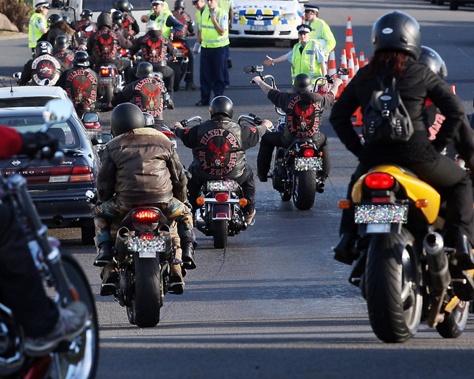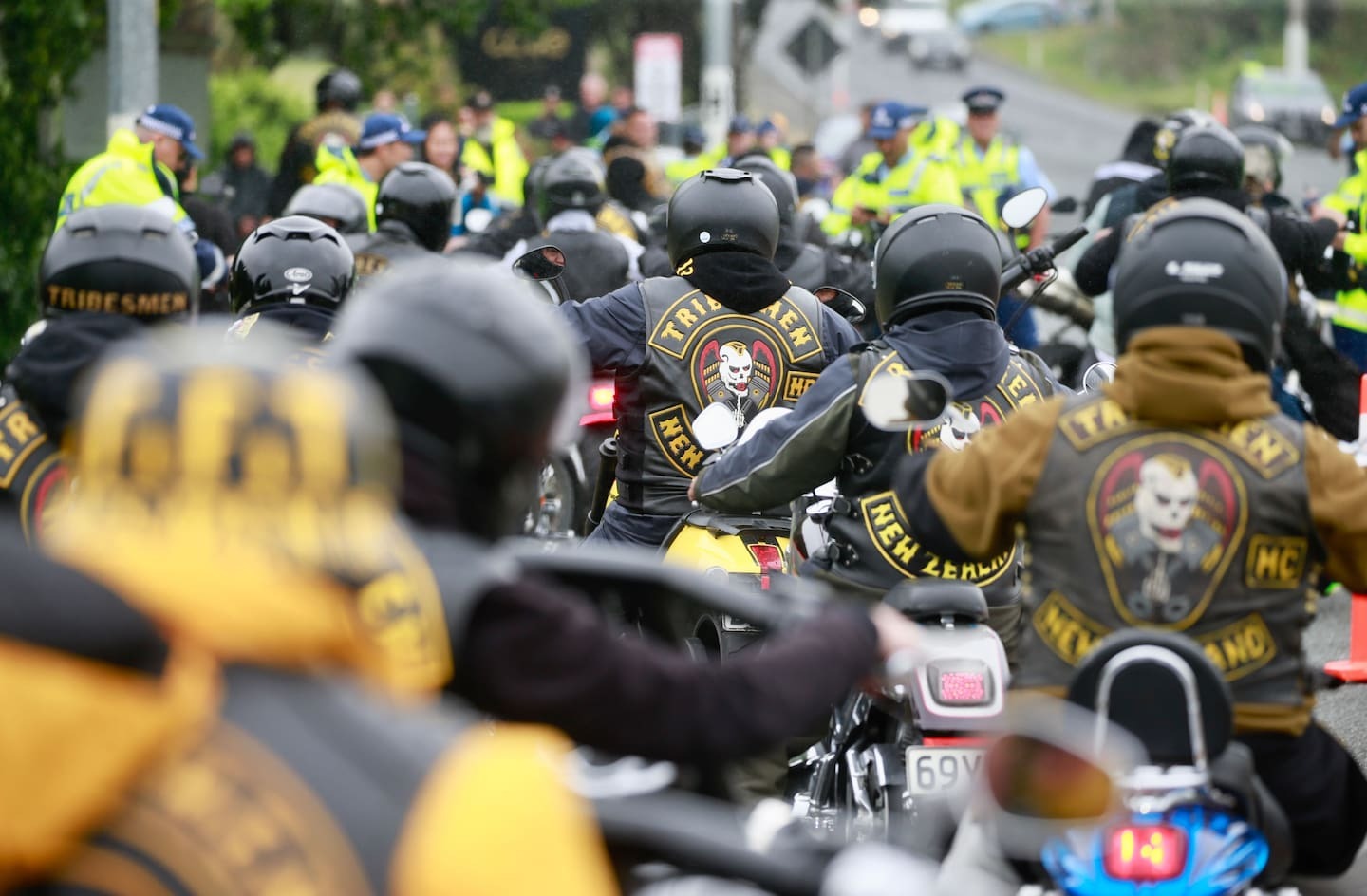
Unpatched gang members will join tomorrow’s hīkoi to lend their support for the Māori movement in Wellington. They are considering their own stand-off on Thursday as the new gang patch insignia law comes into force.
A source said most gang members support the hīkoi and will help swell the numbers marching on Parliament tomorrow.
“Many are planning on continuing wearing patches and looking at a stand-off at Parliament on Thursday,” one gang source said.
“This could involve several gangs.”
The source said plans were being kept under wraps, as they did not want police knowing what they were going to do.
Police Assistant Commissioner Paul Basham says police are ready to enforce the gang patch ban.
Police Assistant Commissioner Paul Basham told the Herald the patch law ball was now firmly in the gangs’ court. He had not heard any intelligence on what gangs were planning for Thursday.
“We are in a position to enforce from Thursday,” Basham said.
He said gang cops and iwi liaison officers have been involved in more than 400 hui with patched members, iwi and hapu as well as other community groups.
He said senior gang members have “indicated they won’t wear their own colours in public and anyone that does will be breaching their own code”.
“Some gang members might just not want the heat.”
At a meeting in Hastings last week about 40 gang members and whānau grilled cops for an hour over their rights and the type of action police would take from Thursday.
Questions included: Why are police choosing to even entertain/enforce this legislation when it has not been through the proper process? Why does the gang legislation list predominantly Māori /poly (aka ethnic gangs)? “Will whanau-affiliated merchandise/home-made clothing be included? Will business logos workwear etc of whanau who have affiliation also be included? What about whānau-affiliated sports teams? Are whānau included in dispersal notices? What happens at tangihanga with whānau? Can these dispersal and non-consorting orders be defended? Can whānau defend themselves using the Human Rights Act and or freedom of association? Is the gangs legislation in direct conflict with Te Tiriti o Waitangi?
Gang members also asked about their gang tattoos - which are exempt.
Basham said the gang members wanted to know how police would approach breaches of the new legislation.
“We have been preparing for this legislation for the last six months and a lot of that has been engine and back-room preparedness, like ICT and policy implementation,” Basham said.
“We have Operation Nickel, which is an engagement phase across the 12 districts; [we had] 450 meetings or forums across the motu, talking with gangs, whānau, fringe gang communities to bring them up to speed, including senior gang leaders.
“That has been constructive dialogue and to signal clearly what the changes are on November 21, when the gang insignia law becomes enforcement.”
Police gang documents show the new law applies to the 35 gangs listed in the New Zealand Gangs Act.
Gang members can still wear patches at their homes and at gang pads but can not wear them in public or have gang insignia on bikes, cars and fences.
Basham said police had made it “crystal clear” where they stand on November 21 “and we feel we have taken every opportunity to encourage people to obey the law and if people don’t, then we will move to postures of enforcement.
“Police have had positive dialogue with some gangs but will not know until after November 21 what other gang members are electing to do around the new law. We hope they make good choices but if they are on the wrong side of the law, they can expect police taking enforcement action.

Dozens of Tribesmen members are stopped by a police checkpoint in Kumeu ahead of the gang's 40th anniversary. Photo / NZME
From Thursday, police will also have the power to issue dispersal notices, which require gang members to leave an area where three or more gang members have congregated and not associate with those colleagues for seven days.
For repeat gang insignia breaches - two or more within five years - the courts can make a prohibition order preventing that gang member from possessing, controlling or having gang insignia at their home.
“Wearing your colours or gang patch a home or at a private premise - [you] can do that and are not breaking the law,” Basham said.
“The only proviso is if someone breaks the insignia law and that is three times in five years.
“It is only when people step into public with their patch that they break the law.”
Basham said the law is to stop the public feeling intimidated by gangs and gang activity and while politicians make the law, it is the role of police to enforce them.
“The purpose of this legislation is to curb the behaviour where members of the public fear intimidation, and we are there to enforce it,” he said.
Take your Radio, Podcasts and Music with you









